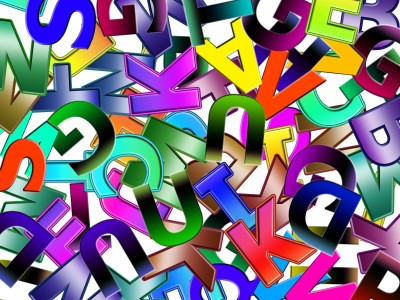The news of the UK’s slipping education standards is worrying: From not knowing who invaded England in 1066 to which century WW2 was in, these shocking statistics gathered over the last 12 months are a bit distressful.
Despite exam results going up each year, new research by the teacher-set exam revision service, Education Quizzes, confirms our fears: young people are struggling to keep up with spelling or remember historical dates like 1066. So does this mean traditional learning-by-rote is failing young people, or in an age of spell check and Wikipedia is it simply not relevant anymore?
Most ironic – and possibly portentous – is the common misspelling of words like ‘achievement’, ‘skilful’ and ‘fulfil’, but the study reveals that the top ten most frequently misspelled words by 11 to 14 year olds studying for their Key Stage Three (KS3) spelling exams are: Achievement (63%), Figurative (61%), Separate (60%), Interrupt (58%), Questionnaire (56%), Skilful (53%), Necessary (52%), Surreal (52%), Fulfil (51%), Interactive (50%).
Although it’s not just spelling where we’re falling short, young people have also displayed a shocking lack of historical knowledge. Almost half (49%) of 7 to 11 year old KS2 History students don’t know who invaded England in 1066 and 44% can’t identify which century World War Two was in. More than a third (35%) of older KS3 students don’t even know the meaning of the word ‘Empire’. Clearly those standard dates once known by everyone (and the secret pin numbers for many an account!) just aren’t taking root with our children.
But leaving to one side whether learning dates is a useful preparation for adult life, young people also know surprising little about their health, rights and the world around them. 43% of KS2 students aren’t aware of the ages at which Children’s Rights apply, 30% don’t know who makes laws in the UK and 17% don’t know what a paramedic does. Most worryingly over half (57%) of the same age group don’t know that drinking too much alcohol damages the liver and 21% don’t know that cocaine is illegal.
Nevertheless young people are up to speed in other, more 21st Century, subjects. For example only 5% of KS3 students don’t know what the word ‘media’ means, and to illustrate the impact of journalism on the public consciousness, 95% of 11 to 14 year olds know that the informal name of the Conservative Party is ‘Tories’ – despite the party’s best efforts to distance themselves from it.
So while GCSE English students might not know what a ‘subtext’ is (71%) or even a ‘paragraph’ (25%) they are talented in new areas. For example environmental issues have come to prominence in the past ten years, and young people have been quick to engage with measures to tackle climate change. Only 7% of KS2 Geography students are unable to identify solar power as an alternative energy source or explain how hydroelectricity is produced, with the same proportion also able to identify the Ozone layer.






“Most worryingly over half (57%) of the same age group don’t know that drinking too much alcohol damages the liver and 21% don’t know that cocaine is illegal. ”
Most worryingly you believe that a KS2, a primary school pupil, should without question know that alcohol damages the liver and that cocaine is illegal. I just hope they know it is bad and they shouldn’t do it. But I suppose I consider it be the responsibility of myself as a parent to teach my children such things not teachers.
Yes teaching children that alcohol is bad is the parents’ responsibility but school should provide an educational platform where kids learn at least how to spell words correctly and read.
Basic school education is vital to form future generations and parents can’t be expected to teach that too.
Hi — I’ve been unable to find the section of educationquizzes.com that details the way these statistics were gathered. Would it be possible for you to provide a link? Many thanks.
I received a press release with the info. I would suggest you email them and ask them for the report.
Sorry again I disagree. I was taught to read, write and spell by my parents. And I’m teaching my son to read, write and spell. The basics are my responsibility. I expect to turn out a decent human being – I do expect parents to help form a decent hard working generation. Shifting the responsibility for that on to schools is absurd as they only have them for 5 or 6 hours a day. They should be left to concentrate on broadening children’s knowledge and understanding of the world not making them learn facts by heart.
Well, if you have time to home-school your children you are lucky but you have to remember that a lot of parents have to rely on school, tutors and nannies while they try to make a living and it is often very difficult to teach children anything after 7pm every evening. I am not in this situation as I am a mumpreneur and I have the flexibility to help and teach my child spelling, reading and maths etc. Plus I have an academic background but what about all those parents who have basic school education? What you are saying, it’s very tough on these parents. As much as I personally agree with you, I have to think of all those parents in my network who cannot teach the children much during the week due to lack of time and they are only left with weekends for that so they have to very much rely on school education.
Who mentioned home schooling? We all can play the I work more hours than thou game but the basics are a parent’s responsibility. Neither of my parents gained O-levels, my father was kicked out of school at 14, but they somehow managed to find time after working full time to read their two children a bed time story and foster a interest in the world, particularly history.
No need for nannies, tutors or indeed school for that matter.
And as a result I’m not planning to outsource my responsibility to anybody else – if my child doesn’t know something I want them to know or doesn’t behave in class that’s my fault – I raised them.
My trouble here is the “facts” that “Almost half (49%) of 7 to 11 year old KS2 History students don’t know who invaded England in 1066 and 44% can’t identify which century World War Two was in. ” invites the idea that they should know and that teachers should be teaching them at those ages. I’d rather theachers focused on teaching the skills for thinking, analysing and evaluating things that are reported as historical facts such as “young people have also displayed a shocking lack of historical knowledge.”
Good luck with being a “mumpreneur” and I look forward to that words entry into the Oxford English Dictionary and my little ones first spelling test including it.
I don’t think that learning things by rote constitutes an education. The word education is from the Latin, e ducere, it means to draw out, so bringing out a person’s ability to think and reason.
What metrics do you define success by? Do you have any evidence that poor spelling means you won’t be successful or achieve?
I mean absolutely nobody is saying that you cannot do well if you cannot spell words, in fact look at how many people affected by dyslexia have become successful entrepreneurs. I knew one in particular who got her PA to write his emails etc but these genius people are the minority. It would be too lazy to forget the spellings just because a few have managed to do without. Learning how to write and read properly is quite essential no matter what you are going to do in life, in my opinion.
But it is your opinion rather than being supported by research, data or facts?